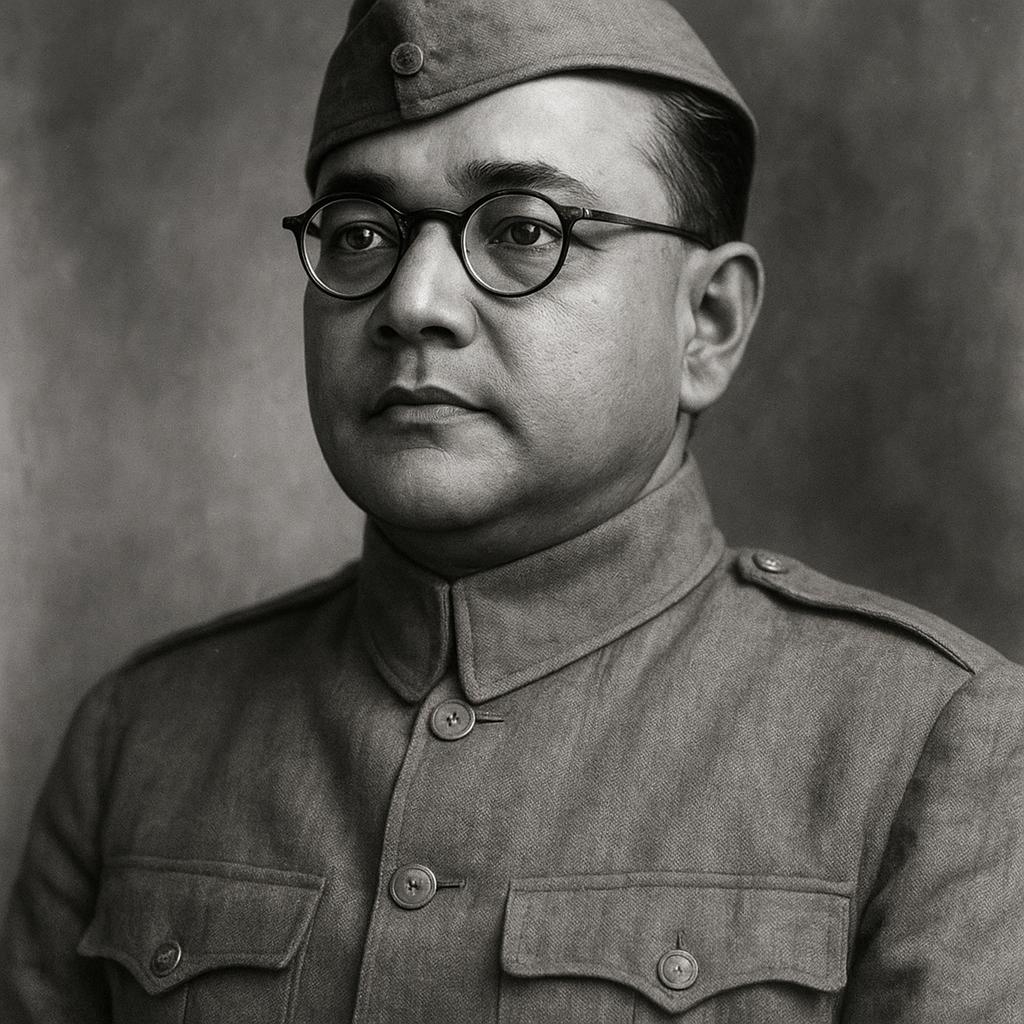




Early Life and Education of Subhas Chandra Bose
Subhas Chandra Bose is a renowned figure in Indian history. Known as "Netaji," he played a pivotal role in India’s independence movement and inspired millions through his courage and leadership. His strategic thinking and strong resolve against colonial rule have made him a celebrated national hero.
In this article, we explore his early life, key achievements, and the legacy that continues to inspire generations across India and beyond.

Early Life of Subhas Chandra Bose
Subhas Chandra Bose was born on January 23, 1897, in Cuttack, Odisha (then Orissa), India. He was the ninth child of Janakinath Bose, a prominent lawyer, and Prabhavati Devi. Raised in a well-educated and patriotic Bengali family, his early life was shaped by a deep sense of nationalism and a strong value for education.
Bose showed great academic promise from a young age and was deeply influenced by the ideas of freedom and service to the nation. The teachings of Swami Vivekananda and his family’s involvement in the independence movement played a key role in his formative years.
Career and Achievements
Subhas Chandra Bose gained recognition through the following key contributions:
- Passing the Indian Civil Service (ICS) exam in England but resigning to join the Indian freedom struggle
- Serving as President of the Indian National Congress and later founding the Forward Bloc
- Leading the Indian National Army (Azad Hind Fauj) during World War II to fight for India’s independence
Key Events in Subhas Chandra Bose’s Life
| Year | Event | Significance |
|---|---|---|
| 1897 | Birth in Cuttack, Odisha | Early life in a nationalist family |
| 1921 | Resigned from ICS, joined Indian freedom movement | Showed commitment to national cause |
| 1943 | Formed and led Indian National Army | Became symbol of revolutionary struggle |
| 1945 | Reported death in plane crash | Became a legend and national icon |
Personal Life and Public Image
Subhas Chandra Bose was known for his fearless personality, deep patriotism, and dynamic leadership. He married Emilie Schenkl, an Austrian woman he met during his travels in Europe, and they had a daughter named Anita Bose Pfaff. Bose kept his personal life private, focusing mainly on his mission for India’s freedom.
Publicly, he was admired for his slogan "Give me blood, and I will give you freedom" and for uniting Indians across different regions. His charismatic image earned him the title "Netaji," meaning respected leader.
Legacy of Subhas Chandra Bose
Subhas Chandra Bose continues to influence others through:
- Uplifting the spirit of patriotism in Indian society
- Inspiring military and revolutionary movements through the Indian National Army
- Being honored in textbooks, research, films, and as a central figure in Indian history
This biography highlighted the journey and influence of Subhas Chandra Bose. His contributions remain relevant in the ongoing discussion of leadership, sacrifice, and independence worldwide.
Learn more about historical and modern-day personalities on Vedantu’s platform.
- Discover other freedom fighters like Mahatma Gandhi, Bhagat Singh, and Chandrasekhar Azad.
- Read about key leaders such as Jawaharlal Nehru and Dr. BR Ambedkar.
- For comparisons, explore the life of Rani Lakshmi Bai and Lal Bahadur Shastri.
- Find in-depth resources at Subhash Chandra Bose Biography.
FAQs on Who is Subhas Chandra Bose?
1. Who is Subhas Chandra Bose?
2. Why is Subhas Chandra Bose famous?
3. Who was the first to call him Netaji?
4. Did Subhas Chandra Bose have a wife?
5. What was Subhas Chandra Bose’s role in the Indian National Army?
6. How did Subhas Chandra Bose die?
7. What are some famous quotes by Subhas Chandra Bose?
8. What is the legacy of Subhas Chandra Bose?
9. Where was Subhas Chandra Bose born?
10. What was Subhas Chandra Bose’s education?
11. What is the Azad Hind Fauj?
12. What were Subhas Chandra Bose's achievements?





















